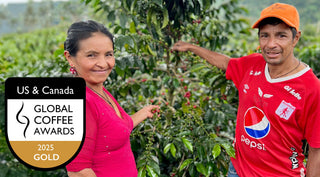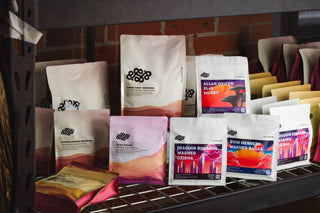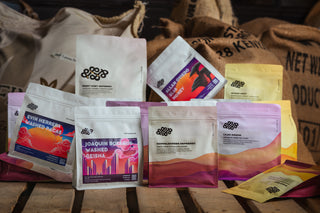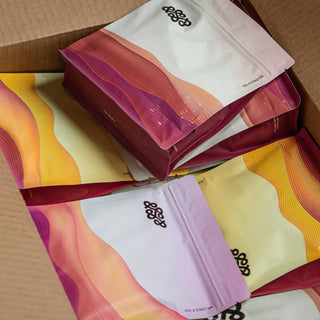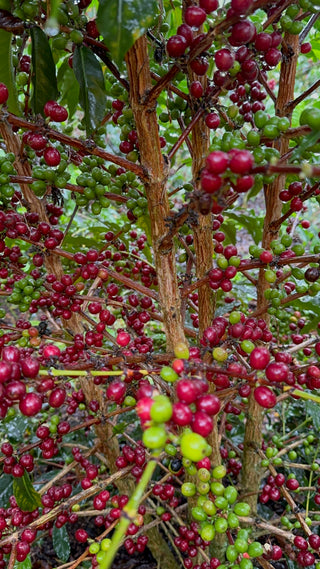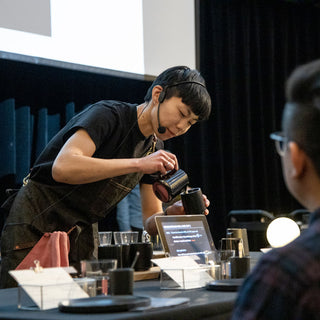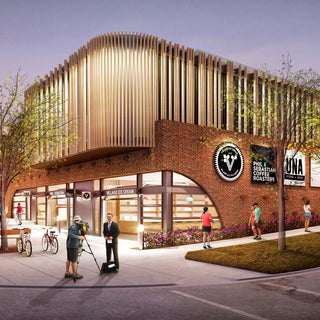By Phil
Two weeks ago, I returned from another awesome visit to Ethiopia. It’s my 4th year visiting during the buying season, and I always look forward to going. Ethiopians are some of the kindest and warmest people on the planet, and I’ve made some good friends there. I’ve also been able to witness the way that Ethiopia, and Addis Ababa in particular, has radically changed over the last years. Structures erect in record time in Addis and each year there’s a slew of new hotels. There is now a light-rail train, which has slightly alleviated the terrible traffic jams. Speaking of traffic, for those that have never been to Addis, the first visit is a bit of shock to the system. There are few traffic controls (lights or circles) in the city, and this basically means that cars entering a 4-way intersection drive directly at each other in jumbled chaos and push through the junction. Surprisingly though, there are fewer dented cars than you’d think and most people are relatively relaxed in their vehicles while driving. The most stressed drivers are non-native Ethiopians!
In past years, I’ve traveled down south to the town of Yirgacheffe and even farther south to the town of Shakiso and the surrounding towns of Jimma and Agaro in the western areas of Limmu and Jimma. On this particular visit, I opted to stay in Addis Ababa, as I’ve learned that there isn’t much of the harvest left to see in January/February. The reality is that the harvest starts in October, is in full-force in November, and begins to wind-down by the end of December. Some areas’ harvests dip into January, and there’s still coffee on the drying tables, but most washing stations tear down for the upcoming rainy season. When I say “tear down”, I mean just that. They literally take down all of their drying tables so that all you will see is a big empty field, a few warehouses, depulpers and fermentation tanks…and no people! There’s a strange desolate feeling to the places, as compared to during the peak of the harvest when they’re buzzing!
Let me share a little bit about how coffee is bought in Ethiopia, how we’ve chosen to buy, and why.
In Ethiopia, there are two ways that exporters can purchase coffee: via the Unions, or via the Ethiopia Commodity Exchange (ECX). You can think of it as a private versus public system.
The private system has washing station owners (called “Akrabis” in Ethiopia) running their washing stations as small businesses. They buy coffee cherry from small holders who grow the coffee on their small parcel – 2 hectares, on average – of land. During the harvest, these small holders look around for the washing station closest to them that’s offering the highest red cherry prices (this year the prices were around 12 birr / kg of red cherry in the south, where we mostly buy. 21 birr = 1USD). The prices for red cherry are not regulated, and they’re driven by supply and demand at the farm level. Last year, this posed a serious problem. There was a major growth in the number of washing stations, and this demand to purchase cherry strained the supply and drove the price way up, as high at 19 birr / kg. This may seem like a win for the farmers, and it was, but many washing station owners couldn’t recover their costs, and they went bankrupt. This year, with fewer Akrabis competing for cherry, prices stayed at lower levels. Well-run washing stations should turn profits. In order to sell their coffee, Akrabis must bring their coffee to the ECX for grading and warehousing. They then sell their parchment coffee on the ECX trading floor to the highest bidding exporter. I’m sure “back room deals” are still made sometimes, but credit is due to the ECX for providing a clear and open line of communication to the Akrabis about what their coffee is worth.
Incidentally, the prices for the lots we intend to buy this year (WKCAQ1) are trading at 2100 birr presently on the exchange (this is 2100 birr / 17kg of parchment). With the approximate 20% loss in weight from dry milling and about 125 birr in transport, taxes, etc. it’s officially costing the exporter $3.50 USD. We would pay a margin on-top of that, of course. The real benefit of the private system is speed and control. Because the exporters are all private there are many of them, which avoids bottlenecks in milling. Additionally, we can work directly with them, make special requests, and obtain speedier delivery of coffee. What we cannot obtain is official, full traceability of the coffee. So, the plus is speed and control, and the minus is traceability. An unfortunate compromise!
The public system is quite different. The washing stations are run as co-operatives and owned by their members, who elect a Board of Directors. Each co-op belongs to a union. The union is responsible for marketing the co-op’s coffee, and they take a cut to do that. In the growing regions, co-ops compete with private washing stations for price of cherry, because co-op members are not obligated to sell their cherry to their co-op. If they choose to do so, they can sell to a private station. Beyond that, co-ops must run their washing stations with the same economic responsibility as the private stations or they too can go defunct. As with the privates, all the coffee from co-op stations must go through the ECX for grading, but after that the coffee can move to the union warehouses. This is where the primary bottleneck exists: the massive amount of coffee is stored, milled and shipped from one facility (per union). This poses particular challenges for buyers like us, who like to mix a number of lots in a container. This mixing interrupts a union’s workflow, and consequently they prefer not to do this. Even though I love the full-traceability, in principle, from the co-op / union coffee, we’ve been burned by these delays too many times. We’ve had coffee take months and months to leave Ethiopia, and then it takes 60 days to get to us!
For this reason we’ve opted to buy from the private system. I’m sure I’ll return to the Unions someday, as they are actively improving their milling facilities, but for now I’m quite happy to have the coffee in Calgary more rapidly!
I visited a number of exporter and importer offices on this trip to further explore the field of offerings this season. I really enjoy meeting new contacts each year and asking lots of questions about how things work. This all contributes to my ability to do business in Ethiopia, and I’m grateful for the insight I’ve gained. I’d like to bring particular attention in this post to my good friend Bruck Fikru. I’ve learned so much from him, as he’s incredibly generous with his time each year I visit. He’s pictured here at his Louis Dreyfus office in Addis, just before we were to undertake a cupping. Aren’t those great looking glasses!
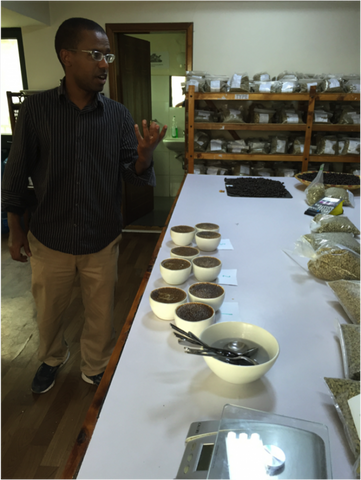
I’d also like to thank Bire and Teddy, Menno, Abiyu and Haddis, Seife Tuuloskorpi, Mike Mamo, Cory Bush, and Abdullah Bagersh for tolerating my many visits and unusual requests over the years!
- Phil

